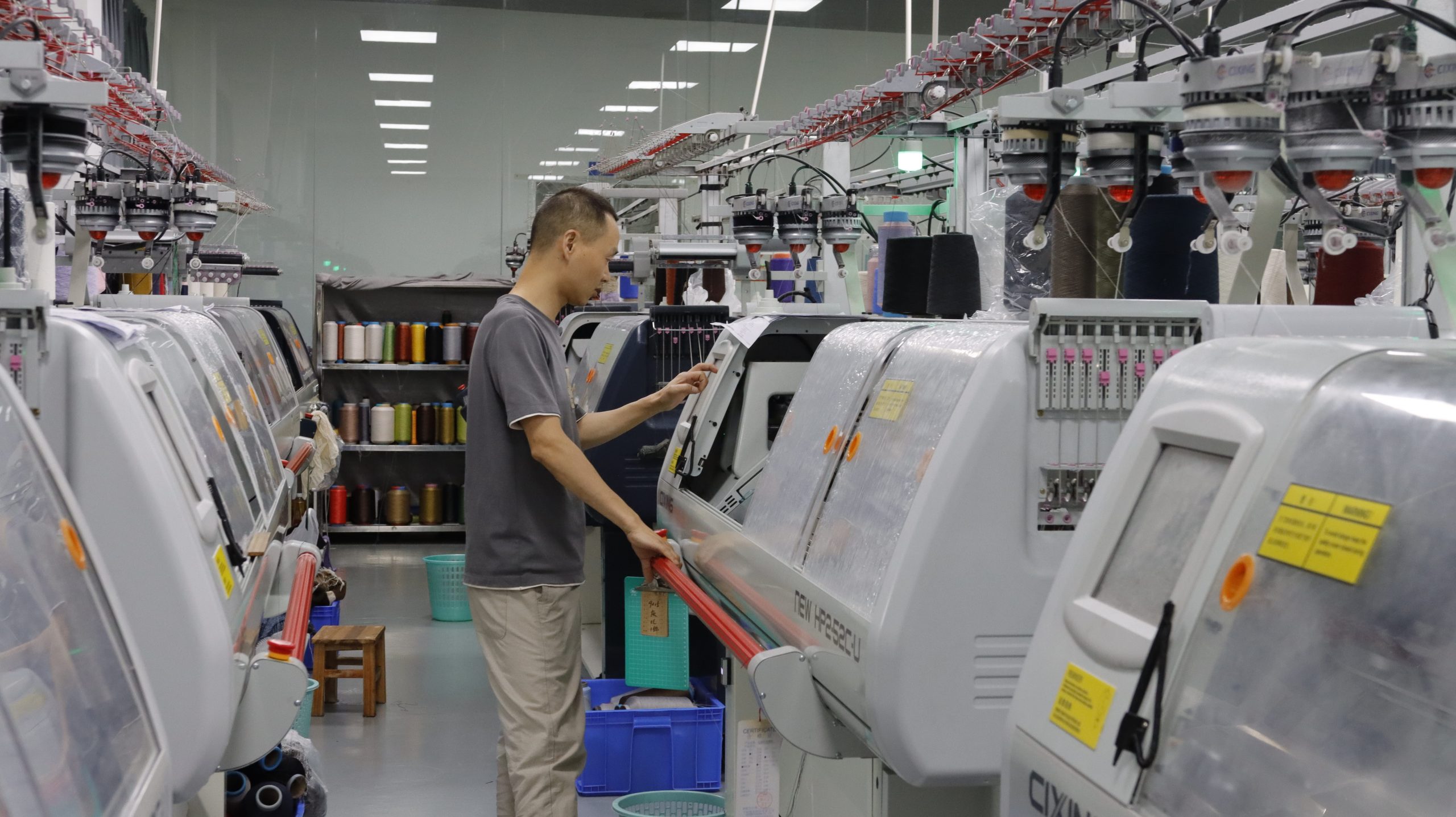In today’s highly competitive garment manufacturing industry, quality control is one of the key factors to ensure brand reputation and market competitiveness. From traditional processes to modern technologies, quality control has always been an integral part of the daily work of manufacturers. With the continuous improvement of consumers’ requirements for quality, maintaining high quality standards has become an inevitable choice for the survival and development of enterprises.
Importance of quality control
Quality control plays a crucial role in garment manufacturing. It is not only a procedure in the production process, but also a key link to ensure that the final product meets a high standard. In the field of garment manufacturing, the importance of quality control is self-evident, because it directly affects the market competitiveness of products, brand reputation and consumer satisfaction.
Quality control ensures product consistency. In garment manufacturing, every piece of clothing must meet the same standards and specifications. Through strict quality control procedures, it is possible to ensure that each product is consistent in terms of size, cut, sewing and decoration. This consistency not only improves the overall quality of the product, but also helps build the credibility of the brand. When consumers buy products from the same brand, they expect similar quality and experience, and strict implementation of quality control can meet this demand.
Quality control ensures product conformity. Garment manufacturing involves the use of various materials and processes, so products must comply with relevant regulations and standards. Through quality control, possible material defects, process problems or conformance challenges can be identified and resolved in a timely manner. This helps to avoid the production of substandard or unsafe products, protect the rights and interests of consumers, and also reduce the legal liability and losses that enterprises may face.
The role of quality control in garment manufacturing cannot be underestimated. It is not only a procedure, but also a key guarantee to ensure product quality and conformity. By ensuring the consistency and conformity of products, quality control not only improves the market competitiveness and brand reputation of products, but also protects the rights and interests of consumers and lays a solid foundation for the sustainable development of enterprises. Therefore, garment manufacturing enterprises should pay attention to quality control, and constantly improve and enhance their quality management system to meet the changing market demand and consumer expectations.
Quality control of key elements
Fabric quality is one of the most basic and important elements in high-end cashmere products. Fabric texture and fiber density directly affect the comfort and durability of the product. In the process of quality control, the cashmere fabric needs to be strictly screened and tested first. This includes checking the fabric for uniformity of fiber, compliance with standards for softness, and any blemishes or defects. Through the use of professional testing equipment, it is possible to evaluate the tensile strength, wrinkle resistance and wear resistance of cashmere key indicators, ensuring that the product remains excellent quality over a long period of use.
In addition to high-quality fabrics, good sewing quality is also an important factor in ensuring the quality of high-end cashmere products. The quality of sewing directly affects the appearance and durability of the product. In the production process, each process needs to go through strict quality control, including cutting, stitching, splicing and decoration. Professional craftsmen need to use high-quality sewing equipment and operate in strict accordance with the design requirements to ensure that each product has a neat and firm sewing line to avoid problems such as broken thread, dislocation or uneven wiring. In addition, the density and length of the stitches also need to be adjusted precisely to ensure that the stitching site is strong and durable, and is not prone to opening or breaking.
Color fastness refers to the ability of cashmere products to not fade or change color when washed or exposed to light, sweat, etc. For high-end cashmere products, the maintenance of color is one of the important factors to maintain the appearance of the product and high-end quality. Therefore, in the quality control process, the color fastness of cashmere fabric needs to be strictly tested. These tests usually include wet rubbing, dry rubbing, washing, dry cleaning and other ways to simulate the use of the product in different environments. Only through strict color fastness testing, the product can ensure that the original color stability is still maintained in long-term use, avoid fading or discoloration, so as to maintain its high-end quality and value.
Through strict control and testing of key elements such as fabric quality, sewing quality and color fastness, high-end cashmere products can ensure the best quality and reputation in the market, winning the trust and favor of consumers.
Quality control in clothing production
Quality control plays a crucial role in cost management. By finding and solving quality problems in the production process in time, the generation of waste and defective products can be reduced, thus reducing costs. In addition, effective quality control can help enterprises reduce returns and claims caused by product quality problems, further reducing production costs. Through reasonable quality control, enterprises can ensure that every product produced is of high quality, thereby improving the market competitiveness of the product, increasing sales revenue, and thus creating more profit space for the enterprise.
In addition, good quality control can also reduce the damage and waste of products in the production process, improve the utilization of resources. By optimizing the production process and improving the technological level, the consumption of raw materials and energy can be reduced, the production cost can be reduced, and the economic benefits of enterprises can be improved.
Quality control plays a key role in ensuring product consistency and legitimacy. In the production of clothing, product consistency is crucial, and consumers expect every product they buy to have the same quality standards and appearance. By establishing strict quality standards and specifications, as well as implementing comprehensive quality control measures, it is possible to ensure that every product produced meets the expected quality requirements, thereby improving the consistency and reliability of the product.
Quality control can also help companies ensure the legitimacy of their products. In the production of clothing, product quality and safety are very important, and must meet the relevant laws and regulations and standards. By establishing a sound quality management system and strengthening the monitoring of raw materials and production processes, it can effectively prevent the use of inferior raw materials or illegal production behaviors, ensure the legitimacy and safety of products, and avoid legal risks and liabilities caused by product quality problems. At the same time, good quality control can also improve the reputation and credibility of enterprises, enhance consumers’ trust and recognition of products, and further promote the sustainable development of enterprises.

 English
English Deutsch
Deutsch Français
Français Italiano
Italiano Español
Español Русский
Русский Polski
Polski Nederlands
Nederlands Svenska
Svenska

